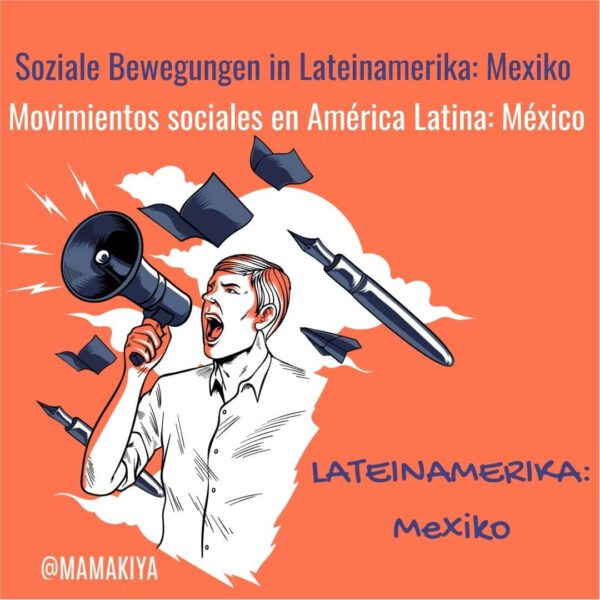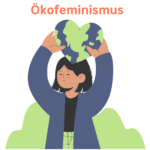On Saturday, December 11, the second online event organized by Mamakiya e.V. on social movements in Latin America took place, this time it was Mexico's turn "The Zapatista Movement and Dignified Resistance". As part of a series of seminars on different forms of struggle that currently exist in Latin America, the social psychologist and cultural manager Evelyn Cazares and the representative of the territorial movement Amilcingo, Fernanda, presented the resistance movements in different states of Mexico.
Speakers: Evelyn Cazares is a social psychologist and cultural manager. She works with groups of artisans in the state of Mexico who are trying to save their knowledge after it has been made invisible.
Fernanda is an activist with the Samir Project, a resistance movement against large-scale extractivism in the Morelos region.
Event Title: The Zapatista Movement and Dignified Resistance (Social Movements in Latin America: Mexico)
Datum: 11.12.2021
Number of participants: 26
Political Social Movements in Mexico
"In Morelos there are different social movements". With these words, Evelyn Cazares describes the reality of communities and social movements in the south-central region of the country. However, as a first warning, the psychologist proposes a conceptual distinction between social movements and collective actions. On the one hand, they do not arise in a disorganized way, but there is solidarity and interaction between people who share the same goal. Through a protest against a social injustice, continuous and lasting collective necessarily emerge over time. In contrast to these collective actions, social movements seek to create networks and connections that articulate common goals among groups of people. For this, collective participation based on solidarity, political action, and support networks is critical to making demands visible in a disruptive way that breaks with everyday life. The goals are clear: to bring about change through the appropriation of space and to confront power structures based on discrimination, i.e. a way of writing and recovering a narrative.
The Integral Morelos Project (PIM)
Fernanda, representative of the resistance movements against the project "Integral Morelos", explains the struggle that has been waged for several years against extractivism in the area. Following the example and in memory of Samir Flores, an activist who denounced the environmental impact of an energy plant in Morelos and was murdered on February 20, 2019, the movement "Proyecto Samir" was born.
The project is a mega energy project promoted by the Mexican state in collaboration with the Spanish companies Abengoa, Elecnor and Enagás. It is to reach as far as Panama and is divided into the regions. Its main objective is the large-scale extraction of mineral resources through an aqueduct, a hydroelectric plant, a gas pipeline and a thermal power plant that will affect more than 80 communities in the region and threaten the volcanic activity of the area.
In response, various resistance movements have emerged, of which the story of the community of Amilcingo, where Samir Flores is from, stands out. Activist Fernanda (last name) says, "The story of Amilcingo is a story of resistance." Since the assassination of Samir Flores, many people have begun to organize and form an assembly of resistance. However, there are communities that do not participate in this type of protest and, on the contrary, see benefits in the extractivist project, which sometimes leads to conflicts between people.
The emergence of the collective Amilcingo
The struggle of the social movement in this area goes back several years, says the activist. Thanks to a festival organized by the Zapatista movement, they got to know the place. In the framework of this event, a caravan for the "Buen Vivir" (Good life) organized, reflecting the communities' interest in resistance, life and justice.
Summary
Finally, after a reflection by the participants of this online seminar on the need to create this kind of dialogue and visibility of these local situations, the speakers point out the importance of social movements and community organizations in creating and saving the narrative of the territories, raising the voice of those who are not heard to defend life and nature. In other words: As new people with the same goals join these movements, other cultural forms of resistance and social change emerge
Author: Pablo Nuñez Arancibia




